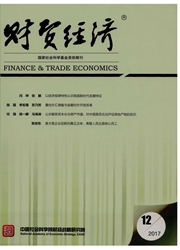

 中文摘要:
中文摘要:
中国房地产市场在严格的金融市场约束下飞速发展是中国经济增长的众多“谜题”之一。房地产开发企业利用“股地互动”机制架起房地产市场与金融市场间“融资通道”是理解这一“谜题”的关键。本文利用2004—2012年上市房地产企业投资活动及股票市场表现的微观数据对“股地互动”机理进行实证研究。本文发现,房企的拿地行为对其股价有显著正向影响,房企股价上涨1~2季度后房地产投资也会显著增加。国有房企和非国有房企在“股地互动”方面的表现有显著差异。中国房地产市场的发展与市场参与者的预期高度相关,与利率管制、企业自有资金限制等因素关系很小,因此从金融管制视角看房地产市场宏观调控政策基本是无效的。
 英文摘要:
英文摘要:
In this paper, we use the micro data of investment and stock price of listed real estate enterprises from 2004 to 2012 to test for stock-land interaction mechanism. The main conclusions of this paper are as follows. The behavior of land investment has a significant positive impact on the stock price, and after 1~2 quarters,real estate investment will significantly increase. Significant difference emerged in the performance of state-owned enterprises and the nowstate-owned in the stock-land interaction. The development of China's real estate market is highly correlated with the expectations of the market participants, instead of interest rate controls and restrictions of its own funds, so the macro control policy to real estate market is invalid from the perspective of financial regulation.
 同期刊论文项目
同期刊论文项目
 同项目期刊论文
同项目期刊论文
 期刊信息
期刊信息
